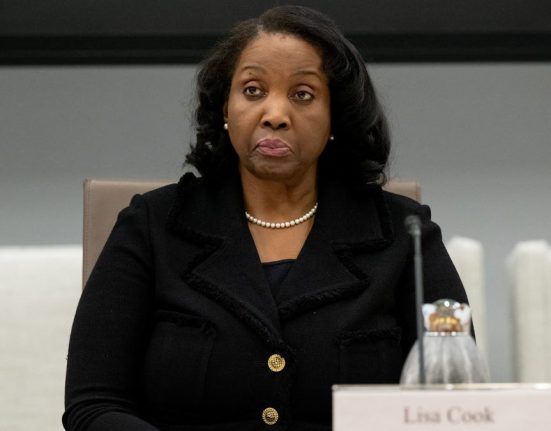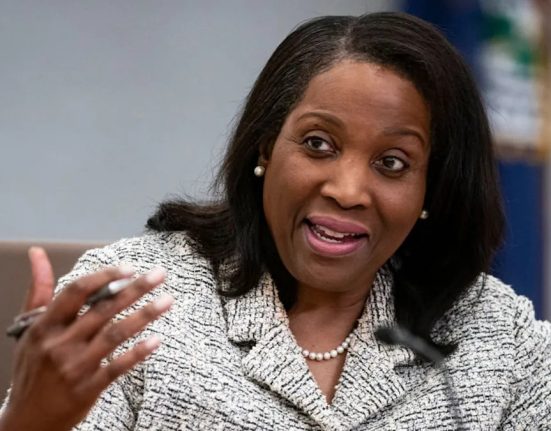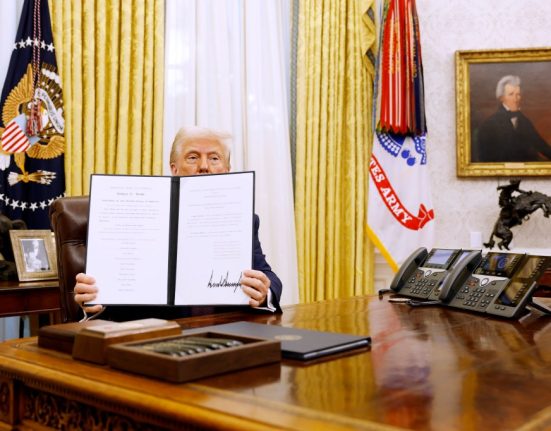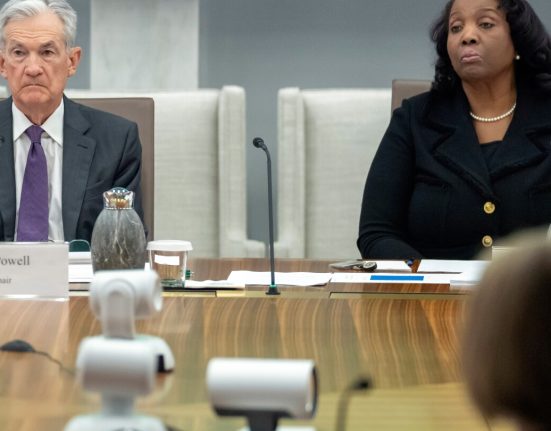The United States has issued a new warning to Mexico over money laundering tied to drug trafficking. This time, the focus is on two banks— CIBanco and Intercam — and the brokerage firm Vector. They are accused of being involved for years in laundering money for criminal organizations and facilitating payments in Asia for the purchase of chemical precursors used to manufacture fentanyl — the great scourge against which both the current and previous U.S. administrations have declared war.
The U.S. Department of the Treasury has issued sanctions and sent a communication to Mexican authorities urging them to investigate. On this occasion, the message is delivered with diplomatic language that emphasizes cooperation between the two countries.
The underlying message, however, carries strong symbolism: the United States will not relent until it brings to justice those who traffic or assist in the spread of fentanyl within its borders — a drug that kills tens of thousands of people each year. At the same time, it sends a clear signal to all companies, including banks, that this fight will not end.
This time, there have been no surprises in the media or signs of disloyalty that might raise concerns. The Mexican government was fully informed in advance of the U.S. Treasury Department’s initiative, which has long been working to cripple drug trafficking through financial pressure.
Mexico’s Finance Ministry acknowledged it received the alert regarding “alleged irregularities at these institutions” and has begun an internal review, “which has already uncovered administrative issues that have been sanctioned.” However, the ministry is awaiting concrete evidence of criminal activity before taking further legal action.
So far, authorities say they have only identified “a few electronic transfers from the mentioned institutions to certain legally registered Chinese companies” — transactions that, they note, are similar to thousands of others carried out daily by domestic banks.
Nonetheless, the message to all financial institutions is clear. And it is the symbolic weight of that message that experts are emphasizing.
“This isn’t new, nor is it the Treasury’s biggest move — last year, they took even stronger action against a U.S. bank, TD Bank, which ended in a guilty plea and involved a much larger amount,” says Cecilia Farfán-Méndez, head of the North America Observatory at the Global Initiative Against Transnational Organized Crime.
What she does consider noteworthy, however, is the broader context: this operation is framed within the fight against fentanyl, which she believes is key to understanding its significance. “What they’re saying is that they’re not letting go of the fentanyl issue — they’re going to fight it from every possible angle,” she explains.
“It’s still paradoxical, on the other hand, because the Trump administration has made changes to anti-money laundering regulations, reducing the amount of information required, something that facilitates these practices. That’s where everything falls apart,” says Farfán-Méndez.
Guillermo Valdés, former director of the National Center for Investigation and National Security (CISEN), gives the institutions named by the U.S. Treasury the benefit of the doubt, explaining that many companies unknowingly end up involved in drug trafficking finances. During his time leading CISEN, he discovered Mexican companies exporting legumes and vegetables that had no idea their sales were being used to launder money. He also mentions a U.S. company that bought bicycles with cash from common retailers like Walmart and others, then exported them to Mexico — without the importers being aware of any illicit activity.
“Such cases can happen, but these accusations [from the Treasury] don’t necessarily imply intentional wrongdoing by targeted companies,” he says.
That said, Valdés adds, “it sends a strong political message. The damage to the companies has been done, but it is also true that it forces Mexico and its companies to establish controls and create intelligence mechanisms that can curb money laundering activities.” Pressure tactics at play.
What remains to be seen is whether the Mexican government, based on these indications, will thoroughly investigate and uncover anything else that could warrant prosecution. “That’s what will be interesting — to see if the Finance Ministry pursues it and confirms it, because these Treasury actions are often preventive, and perhaps some time later they will be removed from that list,” notes Farfán-Méndez.
“What strikes me, in any case,” the analyst continues, “is that the Treasury Department itself specifies that everything was done within the context of a cooperative relationship with Mexico, something that the Mexican Treasury Department confirms.”
A similar situation occurred years ago with BSCH in Mexico, and also in the United States, as previously mentioned. However, the current context is far more intense when it comes to cracking down on money laundering — especially in connection to fentanyl trafficking.
Just this month, the U.S. Treasury Department announced the freezing of assets and properties belonging to “El Mencho,” leader of the Jalisco New Generation Cartel, along with three other top figures in the criminal organization. In its statement, the Treasury made it clear that any entity, organization, or company — whether directly or indirectly owned or controlled by these individuals — would be under serious scrutiny and at risk of sanctions.
On June 14, authorities also announced a major blow in Mazatlán against a couple involved in the construction and luxury goods industries — owners of a web of companies accused of laundering money for the sons of Joaquín “El Chapo” Guzmán, who is currently imprisoned in the United States. These sons — known as Los Chapitos — are accused of trafficking fentanyl. In this case, the Treasury’s action targeted the Sinaloa Cartel, as it was alleged that Raúl Núñez’s businesses were financing the operations of Víctor Manuel Barraza Pablos, the plaza boss for Los Chapitos in Mazatlán, among other links to organized crime.
Cooperation between the United States and Mexico to weaken organized crime through financial sanctions is not new. During the Biden administration, regular exchanges were established to review these matters. Then-Treasury secretary Janet Yellen even visited Mexico, meeting not only with officials from the Finance Ministry but also with private-sector representatives, to stress the importance of cutting off the drug cartels’ economic lifelines.
Today, fentanyl is at the center of Trump’s threats as the U.S. president pushes for more aggressive action against major Mexican drug lords. This latest message from the Treasury signals that no stone will be left unturned in that pursuit.
Sign up for our weekly newsletter to get more English-language news coverage from EL PAÍS USA Edition






